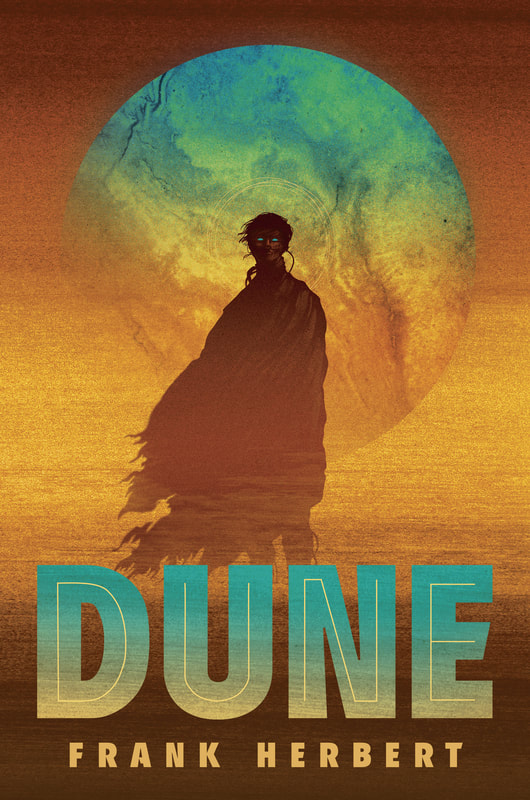Most would, I think, agree that the original Dune novel, published in 1965, remains the crown jewel of the series. It is an epic adventure in the tradition of Arthurian legend, with great worms in place of dragons, the Galactic Padishah Empire in place of Rome, and Paul Atreides in place of Arthur. It harkens back to the oldest form of human storytelling, while at the same time Herbert’s stranger and more unique ideas feel right at home there. The inscrutable Bene Gesserit; the ecstasy-like “spice agony” of Fremen reverend mothers and the prescience of children conceived in it. Herbert brings all of this together in an epic which no doubt altered the face of science fiction, and indeed all fiction, forever.
Herbert went on to write an additional five novels in the series. I think I would struggle to argue that any of the sequels were on par with the greatness of the original. Nonetheless, as far as my personal tastes go, the series only gets more fascinating. Countless lives and thousands of years of history ensue; movements of billions of people factor directly into the plots of the novels. The main character of book four is a giant worm with the face of a nine year-old boy. Book five introduces the concept of the “chairdog”, which I refuse to explain any further. What made the original great is always present; a real, concrete world for the characters to inhabit, as strange and unlike our own as it may be. If you’ve ever thought about trying Dune but were intimidated by its size or apparent denseness, just remember the Litany Against Fear:
Fear is the mind-killer.
It is the little death that brings total obliteration.
I will face my fear.
I will permit it to pass over and through me.

 RSS Feed
RSS Feed
